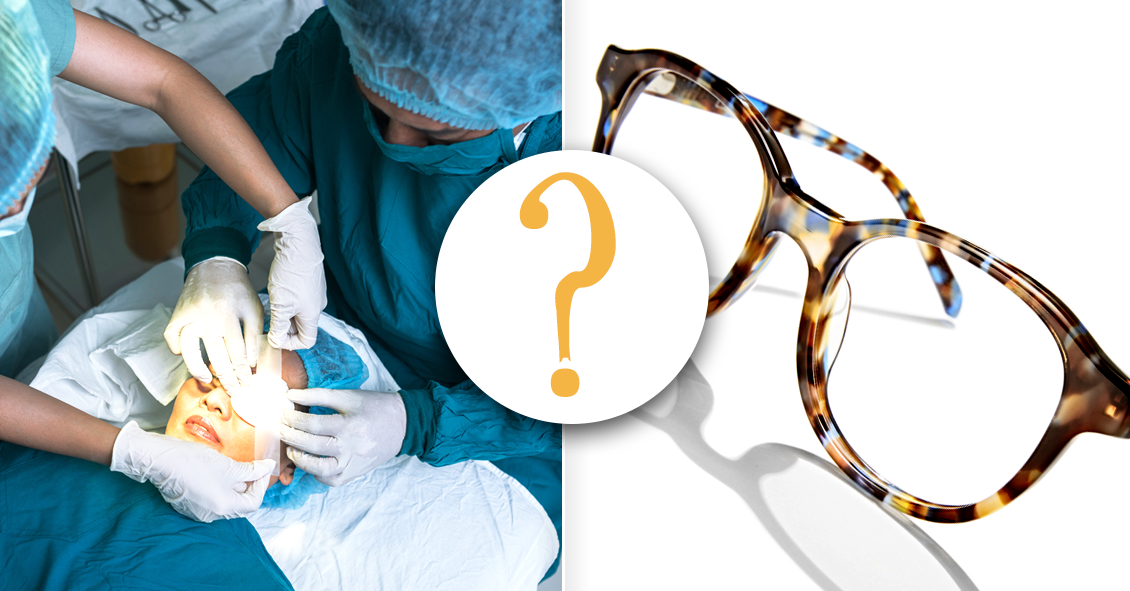
The eye care space unfortunately has an unusual split between two different types of insurance for covering eye problems: health insurance and vision insurance. Not all patients have both.
In most cases, your health insurance gets used to cover medical and surgical eye problems but not routine exams or the cost of contacts or glasses. Those things are often covered by separate vision insurance.
Why the difference? Originally, health insurance was created to take care of health “problems” and wasn’t designed to cover “routine,” “screening,” or “wellness” exams.
Since health insurance wasn’t going to cover “routine” eye exams the vision insurance industry arose to help insure/cover those routine exams as well as the costs of glasses and or contacts if you needed them.
That dichotomy now often causes great confusion when you make an appointment at your eye doctor. When making your appointment, the office is going to need to know which insurance, if you have both, you are going to be using for this particular visit.
Why does the office need to know in advance which insurance you are using?
The main reason is that the rules and sometimes the providers are different for each insurance plan. The vision plans often require the office to check on your availability for coverage and get pre-authorization for the visit BEFORE you get to the office. There are also differences in which providers within an office are in network for the insurance. For example, in some practices the optometrists might be in all the vision plans but the ophthalmologists might not in those plans. If you make an appointment with one of the ophthalmologists and tell the office you are using your health insurance you can’t change your mind the day of the appointment and use your vision insurance instead.
There are also differences in what the insurance will cover as a reason for the exam. Vision insurance typically covers ONLY routine exams. Those are exams during which you are coming in specifically to get your vision, glasses and/or contact lens prescription checked and get an overall eye health screening. That means you CAN’T have a medical complaint about your eyes you want the doctor to deal with. Eyes itchy? Need to use your medical/health insurance. Dry eyes? Need to use your medical/health insurance. Have a cataract? Glaucoma? Macular Degeneration? Need to use your medical/health insurance.
Why not just use your medical insurance all the time? That’s mostly because if you have no complaint at all your medical insurance won’t cover that visit (and “my vision is a little blurry” usually won’t cut it). There is one other issue and that is the refraction.
A refraction is when we check to see if you need a new eyeglass or contact lens prescription. For the most part, health insurance won’t cover the fee for the refraction, which is a procedure that is separate from your eye health exam. Your vision insurance will cover the refraction but not the exam if you are having a medical problem.
Here’s the real kicker. Your health insurance will cover your medical eye problems and your vision insurance will cover your refraction, BUT you can’t use both insurances at the same visit. It has to be one or the other. (Ridiculous right? I didn’t make the rules, just trying to abide by them.)
So, what are your choices if you have both a vision plan and health insurance? If you have a problem, you need to use your health insurance. If you want to have your eyes refracted so you can get new glasses at the same time you can either pay out of pocket for the refraction OR you can come back in for a second visit, using your vision plan and see an optometrist, have a refraction and eye health screening exam so that the refraction gets covered. (Again - I didn’t invent these rules I am just trying to help you navigate them.) If you don’t want to make two visits, then use your health insurance (with the appropriate complaint) and pay for the refraction and just use your vision insurance to help pay for the actual contacts or glasses you are going to buy.
If you have a question, it’s best to ask when you call the office to inquire about an appointment.
Article contributed by Dr. Brian Wnorowski, M.D.



